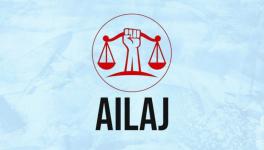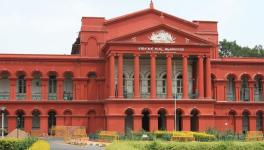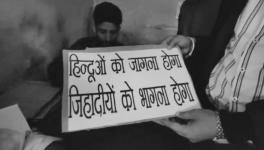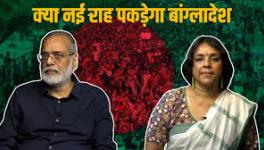Who is Entitled to Hurt Religious Sentiments?
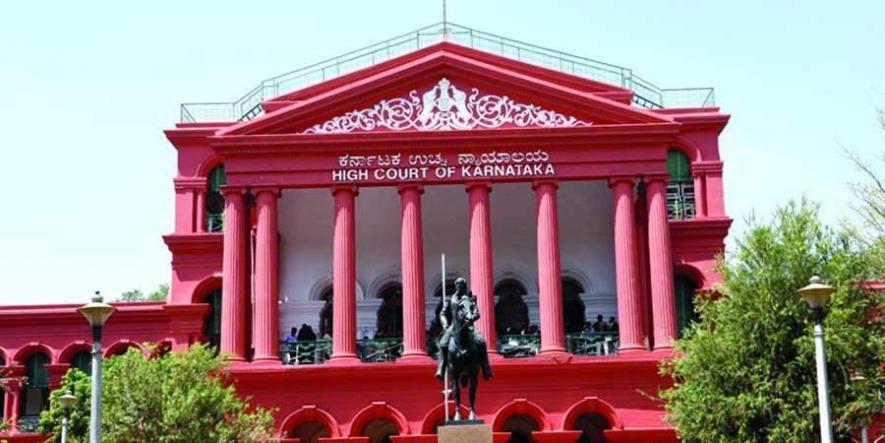
The judiciary in Karnataka is once again in the news.
The latest case in a series of such cases is the Karnataka High Court’s recent judgment saying that shouting ‘Jai Shri Ram’ inside a mosque does not outrage religious feelings.
In an ambience where Right-Wing forces are hell bent upon creating more discord in the society, this judgement can easily be used by those who wish to further vitiate the atmosphere in the country. There are instances galore when such elements have tried to mount atop religious places of 'other' communities and deliberately create tension.
There is a feeling of sadness and surprise that despite the incident being caught live on CCTV, where the duo was seen entering a mosque late at night on their motorcycle, the courts did not look into the intention behind their act.
No doubt legal eagles in the country or civil liberty activists would be looking into the Karnataka HC judgement to formulate a suitable response and possibly challenge it at higher levels. For example, at the immediate level, it is being argued by analysts that the single-judge bench's comparison of this issue with the highest court's ruling in ‘Mahendra Singh Dhoni vs. Yerraguntla Shyamsundar’ case was notably different.
In the particular case, Dhoni, a well-known cricketer, was charged with “hurting religious sentiments” when he was depicted as Lord Vishnu on a magazine cover. Rejecting the petition filed against Dhoni, a bench of Justices Dipak Misra, A M Khanwilkar and M M Shantanagoudar said, “insults to religion offered unwittingly or carelessly or without any deliberate or malicious intention to outrage the religious feelings of that class” should not be seen as hurting religious sentiments.
Today, when the religious and social minorities in the country are feeling besieged because of the growing ascent of Hindutva Supremacist forces, wherein even top leaders of the ruling dispensation have come under the scanner of human rights organisations for spreading bigotry, it is not difficult to imagine how at the immediate level this can further increase a sense of insecurity and a feeling of helplessness among them.
As one awaits a bigger bench's counsel on this particular case or the Supreme Court’s intervention to clear the air, it needs to be further mentioned here that in the ‘New India’, which we have supposedly ushered in, despite formally holding everyone equal before law, is increasingly seeing that the victims of exclusion, slander or hate speeches targeting social and religious minorities, have lesser rights to complain about their 'hurt sentiments' than their perpetrators. There is no level playing field when people from oppressed, excluded, discriminated sections of society make equal claims on rights as equal citizens of the republic.
Perhaps, most learned people would have by now forgotten how a Dalit youth from Uttarakhand was assaulted and charged with a sacrilege case by a local court in Uttarkashi, on a plea from a temple manager, on the charge of hurting religious sentiments by desecrating a place of worship.
These were the same people who did not allow the youth’s entry into the temple earlier, as he was a Dalit. He was brutally assaulted even though his attackers were themselves facing cases under the SC-ST Act. Close relatives of the victim posed this query before reporters as to how an offence under the anti- untouchability Act could be so easily diluted by concocting a case against victim himself?
In fact, there is no dearth of issues that can be used with elan by majoritarians to stigmatise, criminalise, and silence the ‘others’.
It was only last year that 45-year-old woman, sitting in a Gurudwara premises in Patiala, was killed by a visitor unknown to her because she was allegedly drinking liquor, because she ‘hurt his religious sentiments’. What one learnt further was that the religious establishment did not show any sympathy toward the deceased woman, and had no answer for the easy availability of a weapon inside the Gurudwara premises. Also, it did not shy away from claiming that her “act” was part of an organised attempt for sacrilege and deserved severe punishment. Its representatives even went to the murderer’s house and honoured his parents by presenting a saropa to them, as if the killing was a ‘glorious act’.
A stand-up comedian like Munawar Faruqui could be jailed for a joke he had not even shared with the public. whereas a Hindutva Supremacist leader could be promoted to some high post for calling for a 'final solution' to the 'problem'.
What is noticeable is that this phenomenon of 'hurt sentiments' pervades only this part of South Asia.
A leading journalist from Bangladesh had in a scathing article a year ago, in fact, posed this question rather directly when minority Hindus in a neighbourhood in Narail in Bangladesh faced a mob attack over a Facebook post, allegedly by a Hindu student, which had similarly ‘hurt their sentiments’.
What was shocking is a kind of similar pattern being witnessed across the sub-continent?
People assaulted brutally, women dishonoured, shops and houses looted, burnt and destroyed by marauders from nearby areas - many of them known faces to the victims -- and police turning into mere onlookers.
It was puzzling to the writer that such targets of crimes committed in the name of religion, terrorising of communities, which leaves one insecure and disillusioned, cannot even claim that they have been hurt, badly hurt.
The question raised in the Bangladeshi journalist’s article was simple but direct: Who is entitled to ‘hurt religious sentiments?
Without beating around the bush, the writer had talked about the conundrum that no one wanted to solve.
The incredible alacrity shown by the law enforcers over a Facebook post by arresting individual(s) just peters out when it comes to the question of arresting the perpetrators of violence against minorities. The law enforcers are either absent or remain inactive till most of the damage is done.
The silver lining in this rather dark scenario is the fact that there are voices within that are raising questions about such blatant duplicity in the “feeling of hurt” in a multi-path country. These voices are ready to question the silence of the majority over such attacks on the minorities.
Underlining how such silence normalises sectarian violence in the society, the writers from Bangladesh further unpacks the silence as being a ‘result of tribalism’ -- the behaviour and attitudes that stem from strong loyalty to one’s own tribe or social group.
This essentially means that people often remain silent in the face of oppression of minorities caused by members of their own majoritarian group.
Underlining that the "silent majorty" needs to speak up, the article ends with what the 13th century Italian poet Dante Alighieri wrote in the Divine Comedy, "The hottest places in hell are reserved for those who, in times of great moral crisis, choose to maintain their neutrality."
The writer is a veteran independent journalist. The views are personal.
Get the latest reports & analysis with people's perspective on Protests, movements & deep analytical videos, discussions of the current affairs in your Telegram app. Subscribe to NewsClick's Telegram channel & get Real-Time updates on stories, as they get published on our website.














